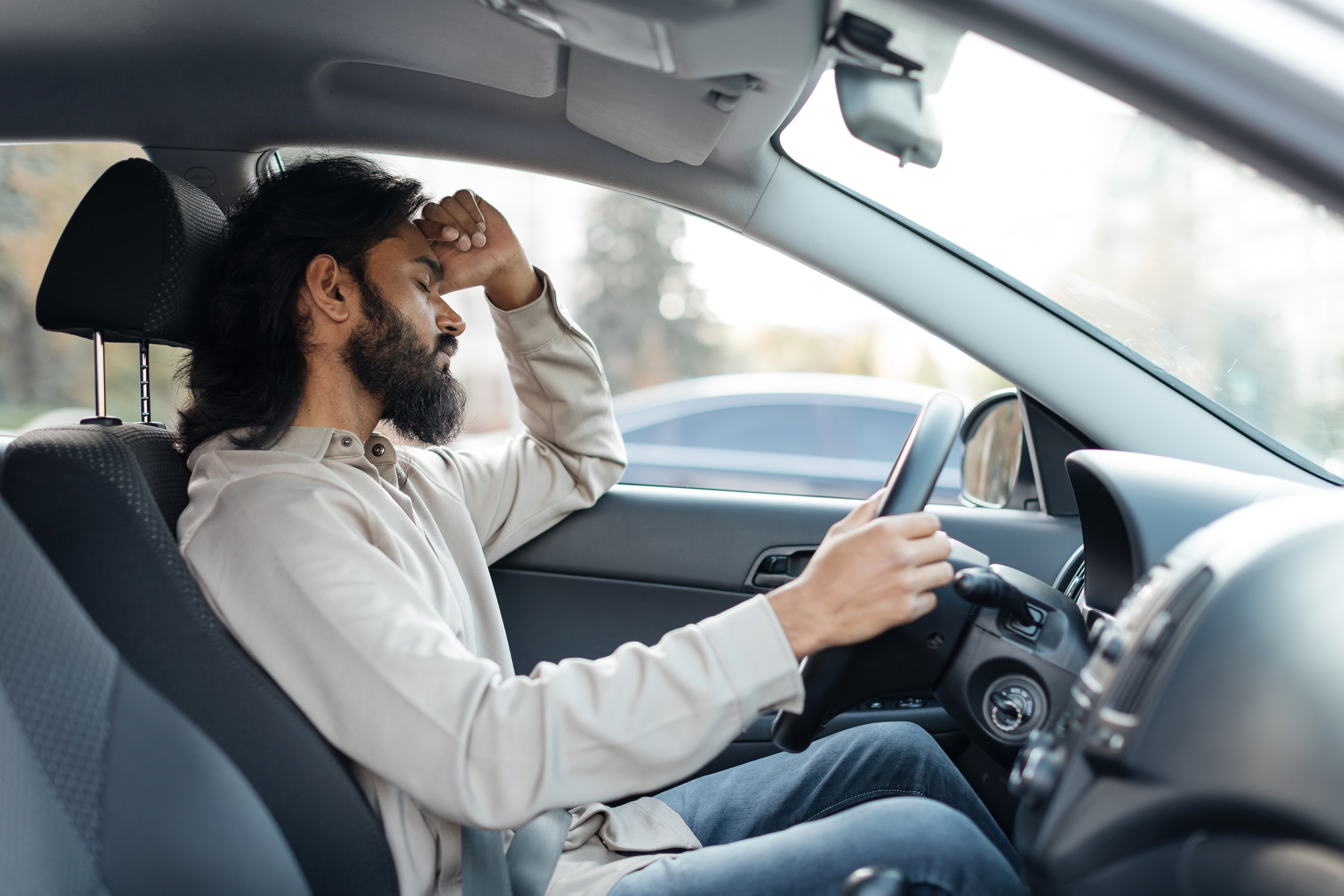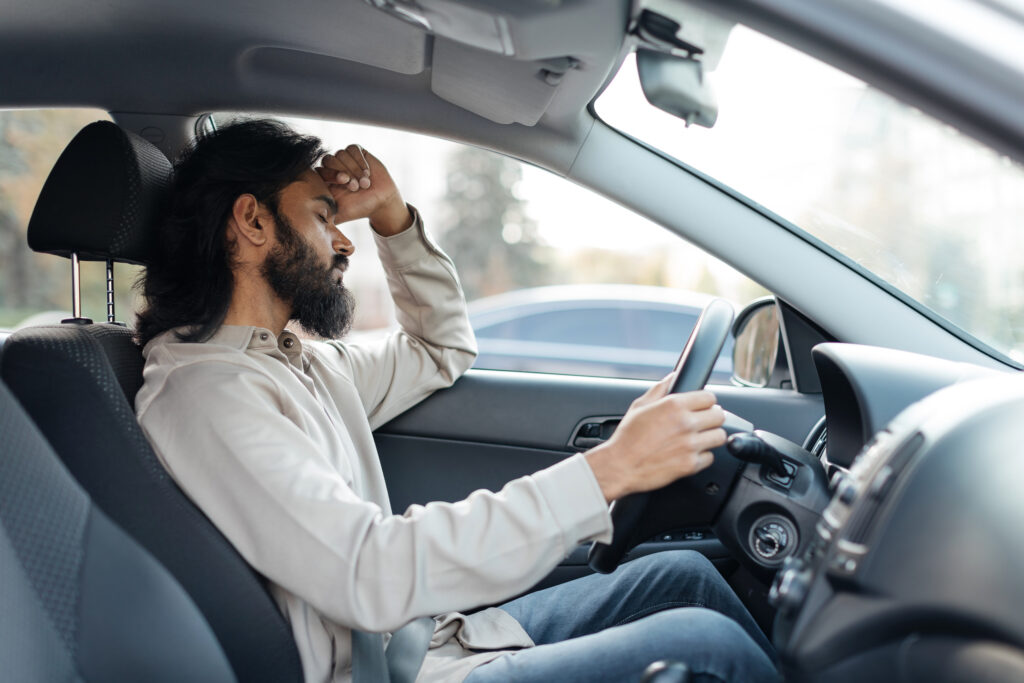Florida Car Accidents Caused by Fatigued Driving: Legal Insights
Driving while tired is a major contributor to serious traffic accidents across Florida. From early morning wrecks on I-95 to late-night suburban collisions, drowsy drivers put everyone around them at risk. Yet many people underestimate just how dangerous fatigued driving can be—and how legally accountable a sleep-deprived driver may be for a crash.
If you’ve been injured by a driver who fell asleep at the wheel, you likely have questions: Can I sue? How do I prove they were tired? Will their insurance cover my medical bills? What if they deny falling asleep?
This article provides a comprehensive guide to understanding your legal rights after a fatigue-related crash in Florida. You’ll learn how to prove negligence, navigate insurance issues, and pursue compensation with the help of a qualified personal injury attorney.
What Is Fatigued Driving?
Fatigued driving occurs when a person operates a vehicle while suffering from reduced alertness or cognitive function due to lack of sleep, exhaustion, or other sleep-related impairments.
Common Causes of Driver Fatigue
- Lack of sleep due to long work hours or insomnia
- Sleep disorders such as sleep apnea or narcolepsy
- Use of sedating medications, including over-the-counter antihistamines
- Long-distance travel, especially overnight
- Shift work and irregular sleep schedules
Drivers may not realize just how impaired they are until it’s too late. Fatigue can set in gradually, leading to missed cues, delayed reaction times, and eventually falling asleep at the wheel.
Why Is Drowsy Driving So Dangerous?
Fatigue impairs many of the same functions that alcohol does. Sleep-deprived drivers experience:
- Slower reaction times
- Poor judgment and decision-making
- Reduced coordination
- Tunnel vision and microsleeps
- Loss of consciousness
A “microsleep” is a brief, involuntary episode of sleep that can last for just a few seconds. On the highway, that’s enough time to drift across lanes, miss a stoplight, or cause a devastating crash.
Drowsy Driving by the Numbers
- According to the National Highway Traffic Safety Administration (NHTSA), over 100,000 crashes per year are caused by drowsy driving.
- The actual number is likely higher, since fatigue is hard to prove and often goes unreported.
- Florida consistently ranks among the top states for fatigue-related crashes, particularly involving long-haul commercial drivers.
Is Falling Asleep While Driving Considered Negligence in Florida?
Yes, falling asleep behind the wheel is a serious form of driver negligence under Florida law. All drivers in the state have a legal duty of care to operate their vehicles safely and responsibly. When a driver knowingly gets behind the wheel while sleep-deprived and causes a crash, they may be held civilly liable for the injuries and damages they cause.
Legal Standards of Negligence
In a fatigue-related case, the following elements are typically examined:
- Duty of care – Every driver owes a duty to others on the road.
- Breach of duty – Driving while fatigued is a breach of that duty.
- Causation – The driver’s fatigue directly caused the crash.
- Damages – The injured person suffered harm as a result.
If these conditions are met, the fatigued driver can be sued for medical expenses, lost wages, pain and suffering, and more.
How Does Florida’s Comparative Fault Law Apply?
Florida follows a modified comparative fault rule. This means that even if you were partially at fault for the crash, you can still recover damages—as long as you are not more than 50% at fault.
Example: Shared Fault Scenario
Suppose a drowsy driver ran a red light and hit your car, but you were speeding slightly. A jury may assign 90% fault to the other driver and 10% to you. If your total damages were $100,000, you would still recover $90,000.
This system encourages victims to pursue legitimate claims, even if they believe they may have made a minor mistake leading up to the crash.
Where Do Fatigue-Related Crashes Most Often Occur in Florida?
Fatigue-related accidents can happen anywhere, but they are especially common in the following locations and scenarios:
High-Risk Roads
- Interstate 95 (I-95) – A major corridor for truck drivers and commuters
- Florida Turnpike – Often used for long-haul travel
- Suburban feeder roads – Long, straight, and monotonous roads can lull tired drivers into a daze
- Rural highways – Lower traffic may make drivers feel too relaxed, increasing sleepiness
High-Risk Times
- Early morning (2 AM – 6 AM) – Natural dip in circadian rhythm
- Late evening commutes – After a long workday, especially among shift workers
- Holiday weekends and long-distance travel periods – Fatigue from long hours on the road
What to Do Immediately After a Drowsy Driving Accident
If you suspect the other driver was fatigued at the time of the crash, take the following steps:
1. Call Emergency Services
Contact 911 to report the crash. If the driver appears disoriented or admits to being tired, report this to the police so it can be documented in the crash report.
2. Seek Medical Attention
Even if injuries don’t appear serious at first, they may worsen over time. A medical record will also strengthen your legal claim.
3. Document the Scene
Take photos of the vehicles, damage, tire marks, and road conditions. If the other driver shows signs of sleepiness—such as red eyes, slurred speech, or confusion—note it or capture it on video if possible.
4. Collect Contact Information
Get names and contact info of all drivers and any witnesses. Their statements may support your case later.
5. Speak with an Attorney Before Speaking to Insurance
Insurance companies may try to settle quickly or deny your claim. An attorney can protect your interests and guide you through the process.
How to Prove Driver Fatigue in a Personal Injury Case
Unlike drunk driving, there is no breath test for fatigue. However, several forms of evidence can be used to establish that the at-fault driver was sleep-deprived.
Common Types of Evidence
- Driver’s own admission (“I barely slept last night.”)
- Police observations (bloodshot eyes, confusion)
- Witness testimony (erratic driving, drifting between lanes)
- Time of crash (early morning hours suggest fatigue)
- Driving logs (especially for commercial drivers)
- Medical records showing sleep disorders or medication use
- Surveillance footage or dashcam videos
An experienced attorney will know how to collect and preserve this evidence and use it effectively in negotiations or court.
How Insurance Handles Fatigue-Related Crashes
Insurance companies often hesitate to accept fault in fatigue-related accidents due to the subjective nature of tiredness. They may:
- Claim there’s insufficient evidence of fatigue
- Blame you for contributing to the accident
- Offer a low settlement that doesn’t cover all your damages
What to Do If Your Claim Is Denied
If your insurance claim is denied or undervalued:
- Request the denial in writing
- Contact a personal injury attorney
- Do not accept the first settlement offer
- Allow your attorney to negotiate or file a lawsuit if needed
Your attorney can demand full compensation for medical expenses, property damage, lost income, future treatment costs, and non-economic damages like pain and suffering.
How an Attorney Can Help in Fatigue-Related Accidents
Drowsy driving cases are complex and often require legal intervention to resolve successfully. Here’s how a qualified Florida attorney can assist:
1. Case Evaluation
Your lawyer will review the facts of the case, police reports, medical records, and insurance details to determine the strength of your claim.
2. Evidence Gathering
They will identify signs of fatigue, interview witnesses, obtain driving logs, and consult expert witnesses such as accident reconstruction specialists or sleep medicine professionals.
3. Negotiating With Insurers
An attorney knows the tactics insurers use and can push back against unfair denials or lowball offers.
4. Filing a Lawsuit
If settlement negotiations fail, your attorney can file a personal injury lawsuit and take the case to court.
Why Acting Quickly Matters
Evidence such as dashcam footage, driver logs, and eyewitness memories can disappear quickly. Additionally, waiting too long could result in losing your right to file a claim due to Florida’s statute of limitations.
By contacting a personal injury attorney as soon as possible, you improve your chances of obtaining fair compensation and holding the negligent driver accountable.
Frequently Asked Questions About Fatigued Driving Accidents in Florida
Can I sue a driver who fell asleep at the wheel in Florida?
Yes, if a driver falls asleep at the wheel and causes a crash, they can be held legally responsible under Florida’s negligence laws. The act of driving while fatigued breaches a driver’s duty of care to others on the road. If that breach results in injury or damage, the fatigued driver may be liable for compensation. A successful lawsuit can help you recover costs associated with medical bills, lost wages, pain and suffering, and more.
What if the other driver denies being tired?
Even if the at-fault driver denies being fatigued, there are still several ways to prove they were sleep-deprived. Witness statements, police reports, traffic camera footage, and driving behavior leading up to the crash can all support your claim. In commercial driver cases, records such as driver logs or time-stamped GPS data may reveal violations of rest requirements. An experienced attorney can help uncover this evidence and present it effectively.
Is fatigued driving considered illegal in Florida?
Fatigued driving is not categorized as a criminal offense in most cases, unlike drunk driving. However, it is still considered negligent behavior under civil law. If fatigue leads to an accident, the drowsy driver can be held accountable in a personal injury claim. In rare cases where extreme negligence is involved—such as a commercial driver ignoring mandatory rest breaks—criminal charges may also be pursued.
How can I prove the other driver was fatigued?
Proving fatigue involves gathering multiple forms of evidence. Admissions from the driver at the scene, statements to police, time of day of the crash, and signs of sleepiness such as drifting across lanes are all useful indicators. In addition, expert witnesses like accident reconstructionists or sleep specialists can provide testimony supporting your case. Your attorney will know how to collect and use this information to prove driver fatigue contributed to the accident.
What damages can I recover in a fatigue-related crash case?
If you were injured in a crash caused by a fatigued driver, you may be entitled to recover both economic and non-economic damages. Economic damages include things like medical expenses, rehabilitation costs, lost wages, and property damage. Non-economic damages may include pain and suffering, emotional distress, and loss of enjoyment of life. In some cases, if the negligence was especially egregious, punitive damages may also be awarded.
Contact Lawlor, White & Murphey Today
If you or a loved one has been injured in a Florida car accident caused by a drowsy or sleep-deprived driver, you may be entitled to significant compensation. Fatigued driving is a preventable form of negligence, and victims deserve justice.
An experienced personal injury attorney can help you build a strong case, prove liability, negotiate with insurers, and recover what you’re owed.
Don’t wait. Contact Lawlor, White & Murphey today for a free consultation. Your path to recovery—physically, emotionally, and financially—begins with the right legal guidance.

